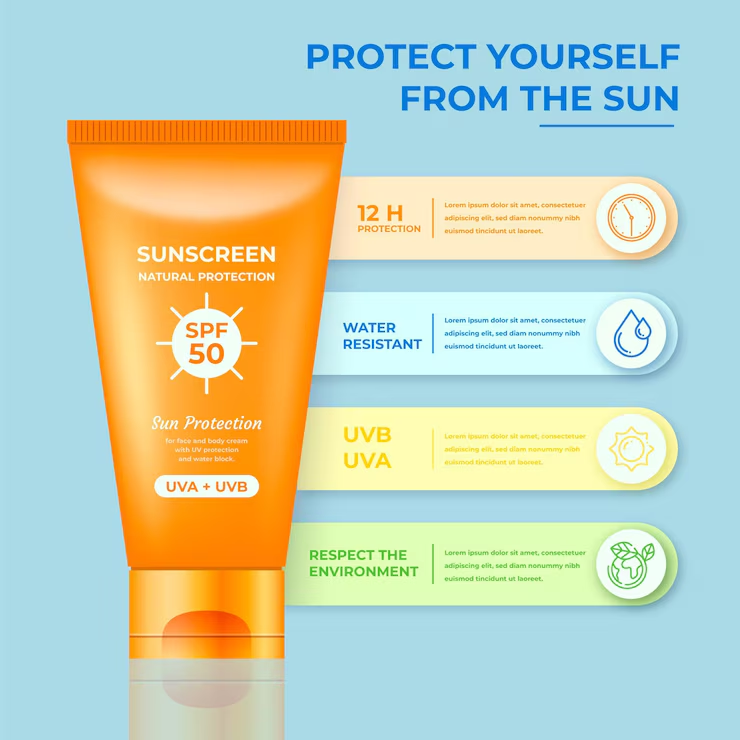Introduction
Basking under the warm rays of the sun can be a delightful experience, but it comes with risks. Sun exposure is a double-edged sword; while it provides us with essential Vitamin D, it also exposes our skin to harmful ultraviolet (UV) radiation. The importance of sunscreen cannot be overstated in safeguarding our skin from these harmful effects. In this article, we will debunk common myths surrounding sunscreen and explore how to find the best SPF (Sun Protection Factor) for your skin type and lifestyle.
Understanding Sunscreen: Myth vs. Reality
Myth: Sunscreen is only necessary during summer or on sunny days.
Reality: UV radiation can penetrate through clouds and even windows, meaning your skin is at risk of damage year-round, regardless of the weather.
Myth: People with darker skin don’t need sunscreen.
Reality: While it’s true that darker skin tones have more natural protection against UV radiation, everyone is susceptible to sun damage and skin cancer. Sunscreen is essential for all skin types.
Myth: Sunscreen prevents tanning.
Reality: Sunscreen protects against harmful UV rays but does not entirely block the sun’s effects. You can still achieve a tan while wearing sunscreen, but it will be a safer and healthier tan.
Myth: Higher SPF numbers provide significantly more protection.
Reality: SPF measures how long it takes for UVB rays to redden the skin compared to not using sunscreen. While SPF 30 blocks approximately 97% of UVB rays, higher SPFs offer only marginally increased protection. The key is to apply sunscreen generously and frequently, regardless of the SPF level.
The Importance of Sunscreen
- Prevents Skin Cancer: Prolonged exposure to UV radiation is the leading cause of skin cancer. Using sunscreen daily significantly reduces the risk of developing skin cancers, including melanoma, squamous cell carcinoma, and basal cell carcinoma.
- Slows Down Skin Aging: UV radiation accelerates skin aging by causing wrinkles, fine lines, and age spots. Regular use of sunscreen helps maintain youthful-looking skin by preventing photoaging.
- Protects Against Sunburn: Sunburn not only causes discomfort but also indicates skin damage. Sunscreen forms a protective barrier that shields the skin from UV rays, preventing sunburn and its associated risks.
- Maintains Even Skin Tone: Sun exposure can lead to uneven pigmentation, commonly known as hyperpigmentation or sunspots. By wearing sunscreen daily, you can prevent the formation of these dark patches and maintain a more uniform skin tone.

Finding the Right SPF for You
Choosing the right SPF can be confusing, given the wide array of options available. Here’s how to determine the best SPF for your skin type and lifestyle:
- Assess Your Skin Type: Individuals with fair or sensitive skin are more prone to sunburn and require higher SPF protection. Conversely, those with darker skin may opt for a lower SPF, but sunscreen is still essential for all skin types.
- Consider Your Activities: If you spend extended periods outdoors, participate in water sports, or live in a sunny climate, opt for a broad-spectrum sunscreen with a higher SPF (30 or above) and water-resistant properties. Reapply every two hours or more frequently if swimming or sweating heavily.
- Pay Attention to Ingredients: Look for sunscreens containing broad-spectrum protection, which shields against both UVA and UVB rays. Additionally, choose formulas that are non-comedogenic and suitable for your skin type to prevent clogged pores or irritation.
- Establish a Routine: Incorporate sunscreen into your daily skincare regimen, applying it generously to all exposed areas, including the face, neck, arms, and hands. For optimal protection, apply sunscreen at least 15 minutes before sun exposure and reapply every two hours or after swimming or sweating.
Conclusion
Sunscreen is not merely a seasonal accessory but a year-round essential for protecting our skin from the harmful effects of UV radiation. By dispelling common myths and understanding the importance of sunscreen, we can prioritize sun protection and reduce the risk of skin cancer, premature aging, and sunburn. When selecting sunscreen, choose a broad-spectrum formula with an appropriate SPF for your skin type and lifestyle, and make sunscreen application a non-negotiable part of your daily routine. Remember, healthy skin begins with sun-safe habits, so slather on that sunscreen and embrace the sun responsibly.










